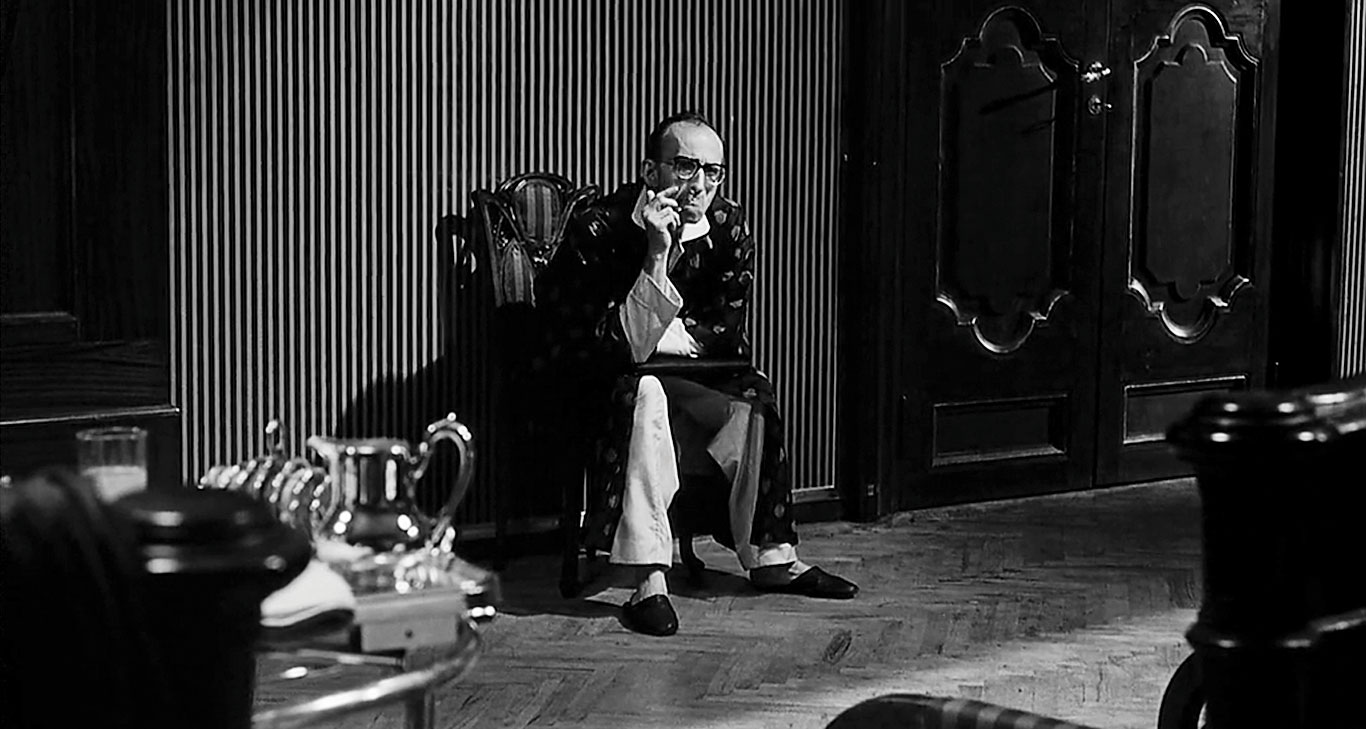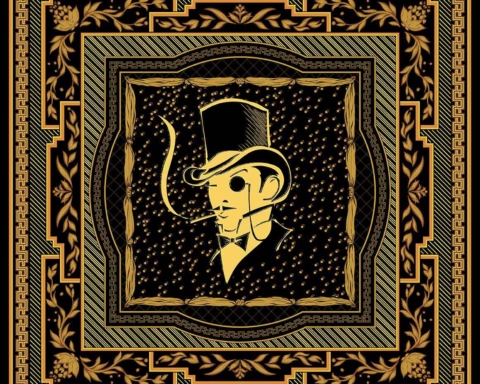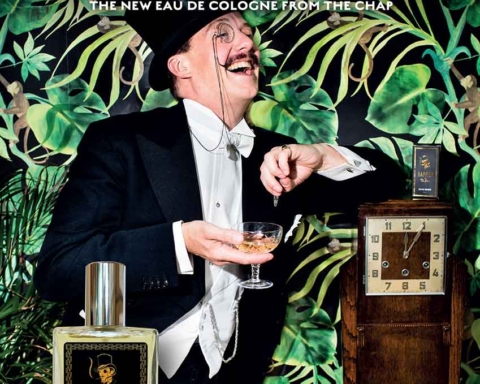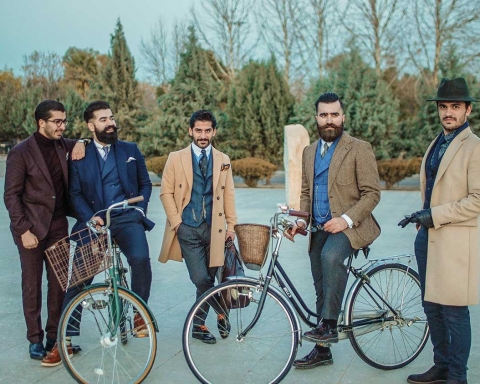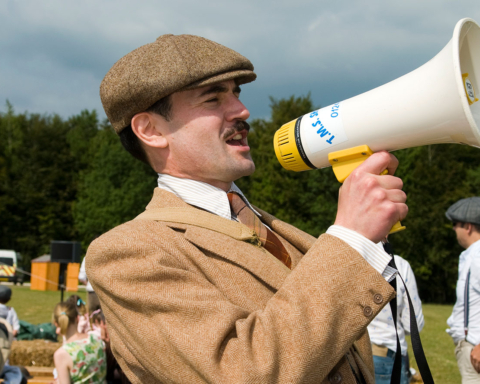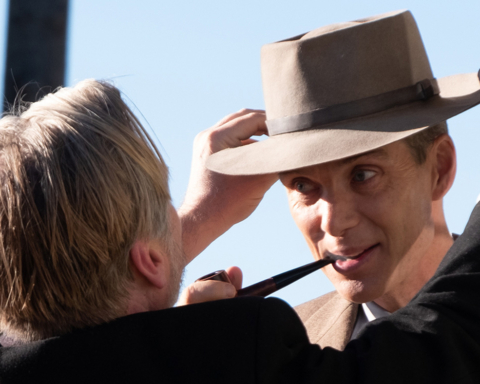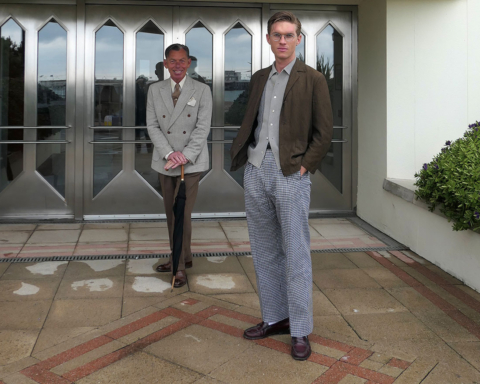Tom Cutler:
I have a confession to make. That’s the thing with confessions, you have to make them; you can’t just take them off the shelf. But confession can be dangerous, resulting in severe injury to the owner-up and the recipient alike. Take the chap who, in a fit of bravado, admitted to his wife that he’d been to Brighton not for the ironmongery conference, as she’d thought, but for a dirty weekend with his secretary. She hit him on the head with some tomatoes and he died of a broken skull. They were in a tin, of course. No flies on that lady.

Anyway, all that was merely by way of delaying my confession. But now it is time to come clean. So here we go – I am louche. That dash gives it away
really; a reputable gentleman would have used a colon there. Louche is a French word not quite meaning disreputable or indecent but hinting at a somewhat tainted reputability in certain matters, and a decency of the decidedly roughshod kind. The word’s literal meaning is ‘squint-eyed’, from the Latin luscus meaning ‘blind in one eye’, though in past centuries a divergent squint was a sign of saintliness, so things must have changed. Nevertheless, along with its patina of tarnish, loucheness has about it a most attractive glamour, though more Raffles than Wimsey.
I only came to realise I was louche because people kept telling me so. A shimmering lady once said that she found my loucheness magnetic. Well, if girls prefer to be magnetised by Sir Henry at Rawlinson End rather than Simon Templar at his Mayfair mews, who am I to demur?
Perhaps you are yourself louche. Before making up your mind, it might be useful to see how you compare with a few undeniably louche characters. Special points will be scored if wine, women and song are among your hobbies. Your preferred song, by the way, will probably be of the unpopular, or edge-, rather than middle-, of-the-road sort, the wine is as likely to be table as vintage, and your women are going to be the kind who don’t mind such things as (a) cigarette burns in expensive tweeds, (b) a gentleman’s overnight kit consisting of nothing more than a bone-handled toothbrush and a bottle of Scotch, or (c) fried eggs, eaten with the hands, at two o’clock in the morning.
To be on the louche list, however, you’ve plainly got to have something more than mere disreputability or you will cross the line into boorishness. You mustn’t be disreputable in the way a lying MP is disreputable, nor should you be indecent in the way a nun in a bathing costume is indecent. Your appetites and excesses may be indecent, but not your behaviour towards others. The louche fellow may often return home late, sometimes through a forced window, but at heart he has a moral core of iron.

Dylan Thomas was undoubtedly louche. He dwelt in pubs, smoked incessantly and was described as ‘roistering, drunken and doomed’. He was as chaotic in his professional life as in personal matters – missing deadlines by years – and he was always borrowing money and forgetting to repay it. But though cash slipped through his fingers like liquid helium, he was a great charmer, and a fine poet.
Bottles and smoke and a certain do-as-you-pleaseness are the mark of the louche chap. He is non-judgmental, lest, I suppose, he be judged. He doesn’t mind elbows on the table or tea stirred with a fork. He treats prostitutes like princesses and vice versa. Though not every girl is attracted by this approach (especially some princesses), most find his indifference to their feminine wiles alluring. The louche fellow’s charm is accidental, not cultivated, and it therefore rings truer.
Raymond Chandler’s Philip Marlowe is a grand fictional louchard – there is no recognised noun to go with the adjective so I have invented it. Marlowe’s home is perfumed by tobacco, chessboards and leather, yet his attitude to everybody is a kind of take-it-or-leave-it disdain. But though he speaks his mind to clients, he works for them as doggedly as he smokes. There’s a gun in his pocket and a bottle in the office desk. He isn’t one for gentlemanly sword fighting – it’s fists and scar tissue, and that last inch of steel. How disreputable. How romantic.
Of course, it’s possible to be an officer and a gentleman, and louche too. Snuff-taking straight from the fingers, bent spurs and port drunk from a paper cup are indexes of this kind of chap, as are a bachelor pad full of dusty tiger rugs, a flapper or two on the sofa and a delight in gravy and potatoes as much as the Savoy Grill. Though a man of this sort will go for beer as cheerfully as he goes for fine wines, and though he will probably drop ash on the table, he will never cheat at games – unless, of course, he is a professional card sharp, fleecing only cads.
My favourite louche friend (now dead) was a whisky priest by the name of Peter. A hard-swearing canon of Westminster Cathedral, he built a glider from bits of wood and broke a height record with it. He knew all the best small restaurants in London and loved pubs – a bit too much. He had several admirers whom he would juggle, not always successfully. I remember one night a poised and coiffed lady witheringly cursing him for a scoundrel after he had stood her up in a nimbus of forgetfulness and Famous Grouse. Another time I recall him trying to cook us lunch. We helped dig out three hardened meat pies from the back of the freezer, whereupon he dropped them into an industrial deep-fat fryer, idly waving a glass of red over the bubbling lard. When they came out they were like cast iron bricks. I think we had them with a bottle of Orvieto and some frozen peas.

When not in church, the Canon was generally kitted out in pale cords and a flapping silk scarf, no matter where he was going. It is one of the peculiarities of the louche gent that he is likely to turn up for breakfast (possibly unexpected) in evening dress, or slide from under his jalopy in oil-smeared pyjamas and a smoking cap. Though his clothes are good, his outfits are frequently assembled in a bit of a blur, so he can look decidedly idiosyncratic.
Peter O’Toole is one of my top louchards. I saw him not so long ago explaining how he and Peter ‘Finchy’ Finch had once been told by a landlord that they had had enough and must go home. They thought this a bad idea, so they immediately bought the pub. O’Toole was telling this story kitted out in grey suede shoes, cream bags and a vast purple garment, which may have been some kind of artist’s smock, partly zipped over an olive V-neck sweater. Under this he wore a white shirt, the gigantic pointed collars of which stuck up and out like a Medici ruff, over a sallow neck scarf. And yet he looked unaffectedly stylish and at ease in this strange get-up. Orson Welles was another one. He used to roll up to interviews in a voluminous black cloak and hat.
But something of the old oomph and style seems to have gone from the louche gentlemen of today. Jeffrey Bernard, Francis Bacon and the fifties Soho lot: now there was loucherie at its finest. I suppose randy Alan Clark MP and the gently swaying Oliver Reed were the last of the Old School, though, as I write, Tom Baker is still with us. He, however, appears to be turning unstoppably into Claire Rayner.
Of course it’s a fine line between the louche and the lush. In 1991, the occasional moustache-wearer and wonderful dresser Oliver Reed was invited to discuss male violence on a live late-night chat show called After Dark. A famous lover of the falling-down liquid, Reed lost no time in helping himself to pints of a water-coloured fluid from a green bottle on the table, and was soon in what one medically minded observer referred to as, ‘a seriously pissed condition’.
Known for his ‘robust stance’ on women’s issues, he began interjecting rude remarks into the conversation and appeared to be farting into the sofa he was sharing with noted feminist Kate Millett. Before you could say, ‘Gone too far again!’, Reed grabbed Millet (whom he had begun referring to as ‘Big Tits’) and forcibly kissed her. Trying to reclaim control, moderator Helena Kennedy looked like someone trying to put a kangaroo back into a duffel bag full of cats but she finally managed to have Reed ejected. He made a crestfallen and contrite exit, though he was still to be heard for some time bumbling around and giggling into the darkness behind the cameras.
The series was cancelled.


